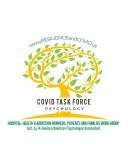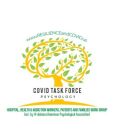Addiction
9 Reasons I Refer People to Al-Anon
For those whose loved ones struggle with addiction, learning self-care is vital.
Posted March 26, 2024 Reviewed by Devon Frye
Key points
- Many Americans are using drugs and alcohol to self-medicate their mental health issues.
- They not only need help but so do their loved ones, who are paying a high and hidden price.
- Fortunately, there is Al-Anon, which can work alone or complement psychotherapy.
By: Patricia O’Gorman, PhD
We keep hearing about a national mental health crisis, as well as an alcohol and addiction crisis. Perhaps it’s time to respond to them together. Increasingly, Americans are self-medicating their pandemic-lingering loneliness, anxiety, and depression, and it is fueling our addiction epidemic. The costs are pervasive and tragic.
.jpg?itok=NlBzovcF)
The Hidden Emotional Toll of Addiction on Loved Ones
But who is paying a hidden price for caring about someone suffering from addiction?
It is family and friends to whom the burden to call 911 falls to get emergency life-saving help in an overdose. It is the romantic partner who contacts their spouse's employer to say they’re ill today so that they do not lose their job. It is the grandmother who prays for them, the sibling who makes excuses when their brother or sister cannot complete the plan they were so proud to have developed. There is a whole community of people who grieve when the person they cherish is slipping away.
Those who love someone with an addiction are the silent suffering parties whom I refer to Al-Anon, support groups specifically for those with a loved one with an addiction. Here in this 24/7 program of international mutual support, they can receive acceptance and support from those who have been there.
Addiction’s Negative Impact
Someone else's addiction can negatively affect a person in different ways across their lifetime, depending on who is addicted and when the addiction starts.
Having a parent with addiction, for example, tends to be confusing and frightening for young children. Patterns of behavior often found in these families include the unpredictable responses of a parent, which can vary from punishing a behavior one time, ignoring it the next, or rewarding it at another time. Confusion can come from being hurt or abused by a parent who doesn’t recall doing it, as well as trauma from seeing a parent or sibling similarly abused—whether physically, emotionally, or sexually—by an intoxicated parent. The same goes for witnessing a parent becoming ill, overdosing, arrested, or dying.
Being in a relationship with someone struggling with addiction is another challenge. Witnessing their daily struggles, seeing them suffer, and having them blame you for their problems is even worse.
And having a child who has an addiction is just heartbreak. It usually means seeing your child suffer through failing in school, dropping out of sports, or losing jobs and relationships—or, even worse, losing (or almost losing) a child through an overdose, suicide, or accident. It is a tragedy.
Why Naming These Stressors Is So Important
Naming addiction as a stressor, and identifying its myriad, painful effects, is empowering and leads to resilience.
If you are a mental health professional, then you are instrumental in addressing the needs of many individuals who have been impacted by alcoholism and addiction. As a trauma and addiction psychologist, I help my clients name their stressors, including a loved one's addiction, and act. I encourage you to do the same.
While this may not be the primary reason someone has chosen to see you, making it a factor that you consider in their treatment can enhance their progress. Naming what is causing your patients pain helps them develop strategies to deal with it. This is what I call resilience.
Why I Refer to Al-Anon
I have been referring my clients to Al-Anon for years because it helps them get better faster and achieve better clinical outcomes. Al-Anon offers:
1. A predictable environment.
Every group has a clear structure—a formal beginning, middle, and end. Groups, including online meetings, are structured to prevent cross-talk. Members are encouraged to share their experiences but not to comment on others' experiences. This keeps meetings focused on validating what each person brings to Al-Anon. As a result, clients begin to trust themselves and their experiences.
2. Permission to change.
Members come to Al-Anon because they realize their lives have become unmanageable and want to change. Change is encouraged, expected, and celebrated. This makes doing counseling easier, as individuals become more receptive to suggestions.
3. A safe space.
There are no judgments in Al-Anon. All members have had similar experiences, and they gather together to validate one another. As a result, clients begin to blame themselves less.
4. The experience of being heard.
Al-Anon encourages members to share their stories. This involves speaking out loud what they have kept bottled up. There is great power in your clients hearing themselves say things out loud that they have kept suppressed—and there is great power in your client’s innermost turmoil being heard by others without judgment.
5. Hope.
Hope is on display and shared at Al-Anon. It is real. Everyone in the room is an example of lived experience, and they are finding ways to manage and begin to grow. What's more Al-Anon offers a library of inspirational pamphlets and books. Clients feel less alone.
6. Meetings are available 24/7.
Al-Anon offers not just in-person meetings but virtual ones as well, allowing attendance anywhere in the world and in different languages. If a client cannot sleep, they could likely find a meeting in the middle of the night in a different time zone.
7. There's no limit to how frequently someone may attend.
Members can attend daily, weekly, or whatever they feel they need. Clients more easily resolve conflicts because support is readily available, and their crises are less likely to escalate.
8. Al-Anon also offers specialized groups.
These include:
- Teens (known as Alateen)
- Parents
- Men
- Adult children raised in addicted homes
- LGBTQIA+
Clients can speak with those with whom they identify and who have specific shared lived experiences.
9. It’s free!
There are no managed care companies involved, which means less stress for your clients and you!
.jpg?itok=ZhAGpvsv)
Dr. Patricia O’Gorman is a clinical psychologist, trauma and addiction specialist, life coach, author, and speaker who has written and presented internationally on topics related to children and families of addiction. She co-chairs the Hospital, Health, and Addictions work group (Trauma Division, American Psychological Association), is co-founder of The National Association for Children of Addiction, and is a Board member of Horses Healing Hearts, and of the Sober St. Patrick’s Day Foundation.
References
He, J., Yan, X., Wang, R., Zhao, J., Liu, J., Zhou, C., & Zeng, Y. (2022). Does Childhood Adversity Lead to Drug Addiction in Adulthood? A Study of Serial Mediators Based on Resilience and Depression. Frontiers in Psychiatry, 13.
O’Gorman, P. The Resilient Woman




